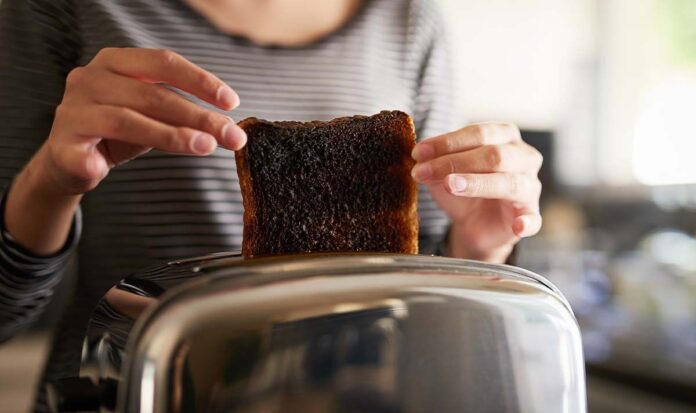Research has demonstrated that diet plays an important role in your cancer risk but less attention has been devoted to the preparation of your meals. However, studies have found that going over the top on heat could produce a carcinogen known as acrylamide. From biscuits to crisps, a doctor lists the popular foods which could put you at risk.While slightly dark toast or an extra crispy chip can hit the spot, research will make you think twice about overcooking your food.Nataly Komova, RD and fitness expert at JustCBD, said: ‘More bad news for people who like overcooking foods – research shows overcooking starchy foods, including potatoes, rice, cereals, and toast, creates acrylamide, a known carcinogen that can damage your DNA, increasing the risk of cancer.’But how does this chemical, otherwise used in dyes and plastics, get into your food?Dr Deborah Lee from Dr Fox Online Pharmacy said: ‘Acrylamide is formed during cooking by the Maillard reaction. READ MORE: Acholic stools are ‘the most common’ sign of pancreatic cancer in ‘initial’ stages Cancer: Overcooking foods could produce acrylamide linked to four types of cancer – doctor. (Image: GETTY)”This occurs when a specific amino acid is mixed with a reducing sugar (mono and disaccharides) and heated to a high temperature – above 140 degrees C.’This reaction results in the browning of the food and is responsible for much of the flavour. It should not be confused with caramelisation.’Anything from frying to roasting and toasting to baking could whip up this culprit in your favourite treats.According to the doctor, the full list of foods that could end up containing the carcinogen includes:Potato crispsFrench friesBreadCookies, biscuits and crackersPrunesOlivesCoffee and some fruit juicesCornflakes and bran flakes Chocolate.DON’T MISS ‘Acrylamide is formed during cooking by the Maillard reaction. (Image: GETTY) Cancer signs and symptoms to look out for include bleeding. (Image: GETTY)’Good quality studies have not shown that acrylamide from food causes cancer in humans.’Despite this, the European Foods Safety Authority (EFSA) states it is not possible to say how much acrylamide is safe in the diet. If you want to play it safe, there’s plenty you can do to reduce your risk and protect yourself.Komova said: ‘The best way to protect yourself against the risk of cancer is by using a food thermometer to keep an eye on the cooking temperature.’Dr Lee recommended sticking to these tips:Acrylamide exposure can be reduced by cooking food for a shorter time and at a lower temperature and eating it before it becomes brown or crispy.Boil or microwave food when possible.Eat lightly cooked toast and don’t overcook bread.Parboiling potatoes before roasting them.Not keeping potatoes in the fridge and drying fried potatoes in a hot oven after frying, before eating them.Eat french fries golden yellow rather than dark brown.Choose dark-roasted coffee and avoid instant coffee.Eating a healthy balanced diet with at least five portions a day of fruit and vegetables.


